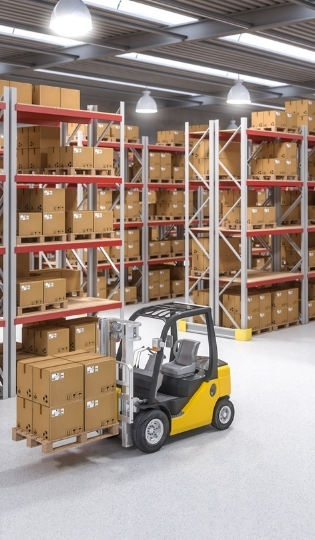Corporate social responsibility and sustainable development issues
A company’s climate strategy is a significant competitive advantage because, in addition to generating significant savings, it involves the company in a process of progress. This approach is part of the concept of corporate social responsibility, more commonly known as CSR, which refers to the contribution of companies to the challenges of sustainable development, both in the environmental and social and economic fields.
In this article, we will explain, through examples, effective practices for reducing your company’s carbon footprint.
Reducing your carbon footprint by reducing and recycling waste
In order to effectively reduce your carbon footprint, it is always a good idea to look at ways of reducing your waste production. Paper and water are two resources that are heavily used in companies and whose use could be limited.
Paper is the most important office waste in France. The raw material used – wood – is the result of deforestation and its production is very water-intensive, making its carbon footprint far from negligible. To remedy this, it is possible to
- Limit printing and recycle ink cartridges,
- Use recycled paper,
- Use both sides of the paper,
- Use drafts.
It is also possible, and recommended, to reduce water consumption. L’Oréal, which has an “A” course in low-carbon investment from the NGO CDP, uses “dry factories“. In these production sites, the water consumed is used exclusively for the composition of products or for human consumption.
Water used for industrial processes, such as tank cleaning, is purified and reused for other processes on site. The implementation of a dry plant is now possible thanks to highly efficient technologies for wastewater purification, such as ultrafiltration, reverse osmosis or evapo-concentration.
Promote public transport and limit business travel
Transport makes a significant contribution to pollution and greenhouse gas emissions. Companies can reduce their carbon footprint by promoting public transport, or by investing in a car-sharing fleet. Another way to indirectly reduce transport is to telework, at least a few days a week. By setting up an efficient video-conferencing system, it is also possible to drastically limit business trips, which often consume a lot of paraffin.
Metron, a company that develops intelligent systems to reduce the carbon footprint of industries, is implementing innovative technologies to decarbonise transport. Their artificial intelligence system collects data on vehicle consumption in order to manage the massive switch from transport to electric vehicles and to allow efficient recharging, drastically reducing overall energy consumption.
Favouring short circuits
To limit the emission of a large volume of CO2 during transactions and thus drastically reduce its carbon footprint, it is also important to favour short circuits, by opting for partnerships on a local scale.
This strategy has been exploited by Danone, whose aim is to source ingredients entirely from French regenerative agriculture by 2025. This is in line with their ambition to be carbon neutral.
Other solutions of different nature
There are other ways to limit one’s carbon footprint. These include carbon offsetting, which refers to initiatives such as reforestation or agroforestry that allow carbon to be sequestered through the restoration of ecosystems.
It is also advisable to limit energy consumption, by prioritising the use of a laptop instead of a desktop computer, or by using multi-functional devices. The biggest impact is to switch from fossil fuels to green energy, if you have not already done so. To improve energy efficiency in industry, it is also very useful to carry out an energy audit, in order to achieve better energy performance.
Similarly, the fight against programmed obsolescence and a rational use of the internet are among the recommendations. More concrete advice includes :
- Keep only essential emails,
- Unsubscribe from unnecessary newsletters,
- Limit the number of receivers to what is strictly necessary,
- Take the time to formulate requests properly
Adopting a circular model
Finally, the most global objective today is to produce goods and services while limiting the consumption and waste of raw materials and non-renewable energy sources. This objective can be achieved by operating in a “loop”, thus abolishing the notion of “waste“. This is what is known as the circular economy. Each company can, through its own management, participate in the implementation of a circular system.
However, sometimes the CSR strategy is not enough to make significant progress. Faced with a systemic brake, it is sometimes difficult for companies to move beyond declarations of intent and make a sustainable commitment. It may then become necessary to redefine the “raison d’être” of the company, in order to change its governance.
With the help of this advice and by developing strategies adapted to your processes, you will be able to reconcile performance and sustainable development.
Written by Emma Guignard








